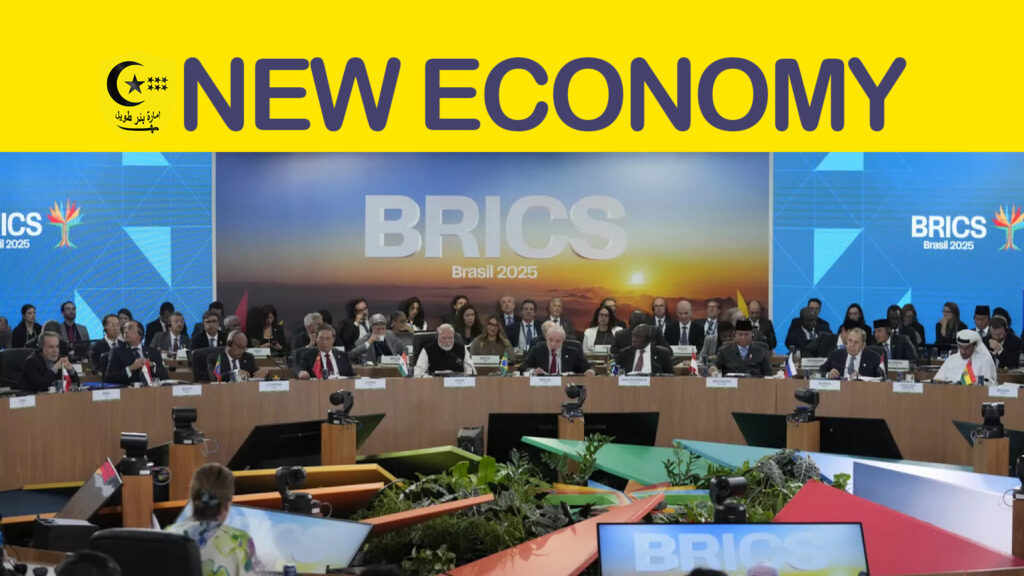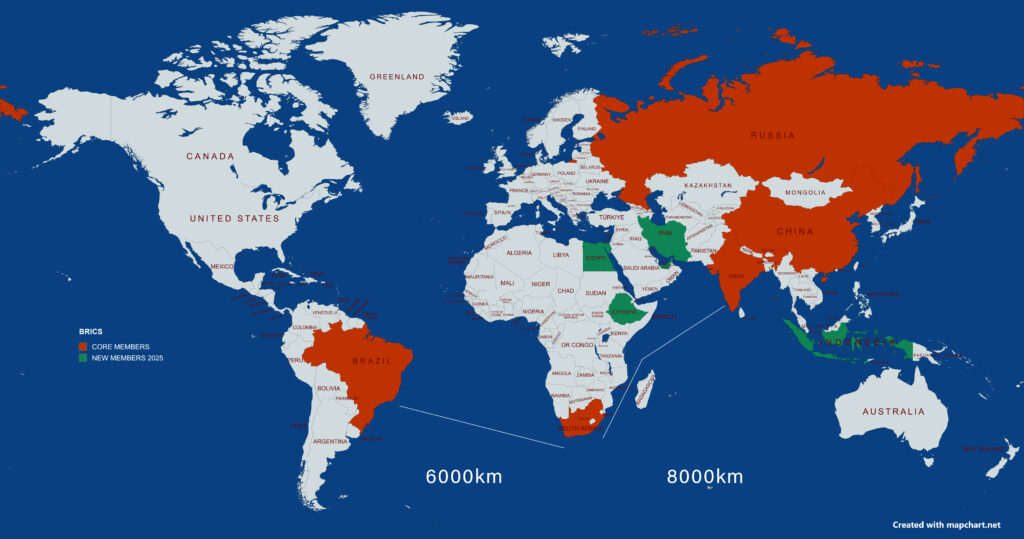
Is the BRICS New Economy 2025 Summit an opportunity for the Principality of Bir Tawil? Working for a more inclusive and sustainable governance
The Regency Council of the Principality of Bir Tawil has approved the Principality’s adherence to the principles set forth in the Final Declaration of the XVII BRICS Summit, held in the city of Rio de Janeiro. With this decision, the Principality reaffirms its commitment to strengthening economic cooperation with the member states of this alliance, within the broader framework of the BRICS New Economy and its vision for a more just, inclusive, and multipolar international order.
The BRICS Summit marked a pivotal moment in the evolution of the bloc and the consolidation of the BRICS New Economy. Gathered in Rio de Janeiro, leaders and delegates from Brazil, Russia, India, China, and South Africa — joined by representatives from countries such as Egypt, Iran, Ethiopia, Saudi Arabia, and Indonesia — reaffirmed BRICS’ identity as a voice for the Global South. The final declaration emphasized the group’s commitment to a fairer, more multilateral, and representative international system, with special focus on reforming the United Nations Security Council and other global institutions, all within the advancing scope of the BRICS New Economy.
Bir Tawil’s position aligns with these principles. The Principality recognizes the coordinating role BRICS plays in the redistribution of global power, especially in favor of historically marginalized regions. From this perspective, and in light of the BRICS New Economy framework, its symbolic adherence can be interpreted as a stand for self-determination and the right to participate in global discourse, even from the margins.
One of the key factors motivating Bir Tawil’s support is BRICS’ push for financial independence from the U.S. dollar, a core objective of the BRICS New Economy. The summit introduced progress on cross-border payment systems in local currencies and a Framework on Trade and Sustainable Development—initiatives that could open up opportunities even for small territories with aspirations for economic sovereignty.
On environmental matters, the BRICS Framework Declaration on Climate Finance was another point of interest for Bir Tawil, and is viewed as integral to the environmental pillar of the BRICS New Economy. The Principality’s authorities have expressed a willingness to collaborate on initiatives related to climate change mitigation, reforestation, and clean energy, offering its territory as a testing ground or host site for pilot projects.

Technology and inclusion: an opportunity in the BRICS new economy
Another key pillar highlighted at the summit, and embedded in the BRICS New Economy strategy, was technological innovation. With the launch of the Action Plan for Innovation 2025–2030, BRICS aims to lead in areas such as artificial intelligence, quantum computing, and Industry 4.0. Bir Tawil expressed interest in exploring avenues for academic and technical collaboration, especially through institutions like the new Center for Industrial Competencies, created in partnership with UNIDO.
These types of initiatives—cornerstones of the BRICS New Economy—open the door for even small territories with limited capacities to integrate into regional value chains through training agreements, technology transfer, and South-South cooperation.
The summit also highlighted the role of culture and social exchange as tools for peace and development, further underlining the inclusive vision of the BRICS New Economy. In that spirit, Bir Tawil announced that it will promote cultural diplomatic activities aimed at building ties with youth, academia, and social movements in BRICS countries. The inspiration comes from the academic and labor forums held in Rio, which are emerging as spaces for grassroots diplomacy.
The bloc’s final declaration made clear that expansion will proceed through a path of consensus and inclusion—principles at the heart of the BRICS New Economy. Although Bir Tawil is not yet part of the formal accession processes like Bolivia or Kazakhstan, its political gesture can be understood as evidence of the growing relevance of this alliance for non-traditional actors seeking a new place on the international stage.

